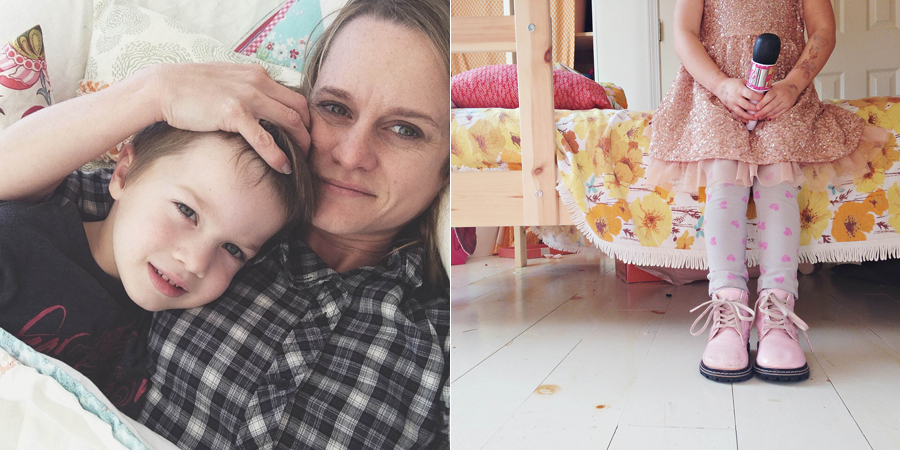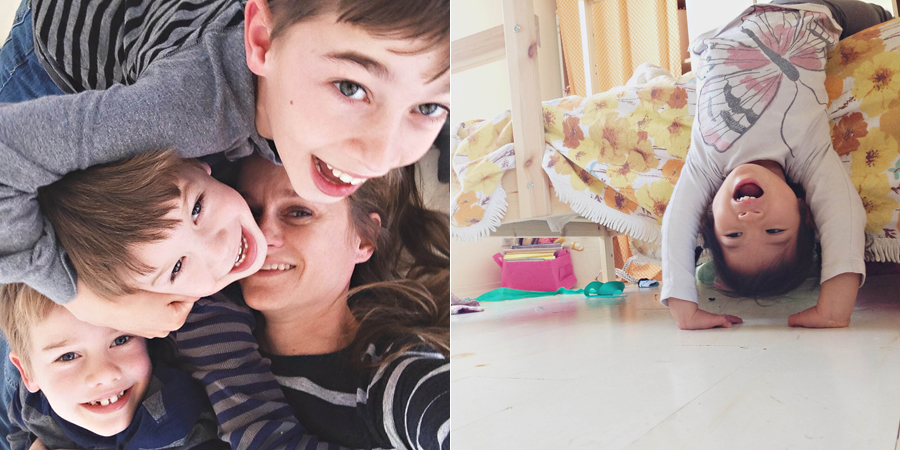authentic & mindful {an interview with Dr. Barbara Sorrels}

In the past I’ve mentioned my friend Dr. Barbara Sorrels a few times. I can’t express how much insight and wisdom she has shared with my family over the last couple years as we’ve faced some hard things related to our youngest daughter’s story. Last fall, I attended a class she taught called “Parenting Kids From Hard Places”. The class was full of foster parents, adoptive parents and potential adoptive/foster parents. She opened my eyes to so many things and gave me tools to help our family journey through difficult seasons.
One thing I love about Dr. Sorrels is that she tackles really hard and devastating issues kids face with hope and practical advice. I attended in hopes to help my youngest daughter through some tough stuff. I left each class re-evaluating how I parent all my kids. Dr. Sorrels is gentle and soft spoken – but full of passion and purpose when you get her talking about the development of children. I took a billion notes during her class.
She is helping Chris and I become better parents. In fact just yesterday while dealing with some tough behaviors in one of our kids, Chris said, “I keep hearing Barbara’s words in my head.” I often feel the same way.

I asked her if I could do a mini-interview with her on my blog. Just a couple questions related to parenting in general. I’m thankful she agreed.
I heard you once say that we need to be authentic parents, not perfect parents. And that kids may not listen well, but they mimic well. Can you expand on that?
In the heart of most parents is a genuine desire to parent well. But in some circles, and certain churches, this desire often morphs into perfectionism. When parents begin to compare their children, and their parenting skills, with others, it creates an unhealthy climate where people measure success through outward appearances.
Parenting becomes focused on sending children to the right schools, playing on the right sports leagues, taking all of the right lessons, or wearing the right clothes. Children are pressured to be the biggest and best at everything they do as it is believed that their success or failure is somehow a reflection of the parent.
In any culture group, be it a church, a civic organization or a PTA, there often becomes a “right” way to parent which becomes the established norm. This can put an enormous amount of pressure on both parents and children. To pursue perfectionism is “spitting into the wind” because imperfect people will never be perfect parents.
But on the other hand, being an authentic parent is an attainable goal. Authentic parents are aware of their own emotional wounds, and are on the journey of emotional and spiritual healing. They aren’t constantly looking over their shoulder to see how they or their children stack up, but they live in a constant state of awareness of the individual needs of their kids.
They don’t have a pre-determined agenda for their children in terms of the child’s purpose, passions and abilities. They recognize that their children ultimately belong to God and are put on this earth to accomplish His purposes. Authentic parents are not afraid of being known by their children. They aren’t afraid to admit when they are wrong, and are quick to repair the relationships with their children when they fail. In fact, “ere and repair” is a way of life!
The primary way children learn is through imitation not through words.
One of the most common complaints of parents is, “My child just doesn’t listen to me.” Even under the best of circumstances, children can only process and remember a small portion of what we say. When it comes to parenting, who we are speaks louder than what we say. They are watching how we treat the clerk in the grocery store, how we react to the grouchy neighbor next door and how we respond to stressful situation.
I remember my daughter once saying to me, “I hate it when you are stressed because it makes me feel stressed.” Her comment made me take a hard look at how I was handling the stress in my life. We can’t expect our children to be what we are not.

About a year ago, I listened to you share at a conference. One key point you made was that we can starve our children emotionally through preoccupation. Being preoccupied with jobs, technology, etc. You said you believe we are a nation in crisis when it comes to our kids. Will you explain this more?
In the work I do with teachers and child care providers I am often asked, “Why are children today so angry and out of control?”
There is an increasing number of children in classrooms around the country who display challenging behaviors, causing problems with learning and social relationships. Parent participation in schools is at an all time low. Churches struggle with recruitment of volunteers for children’s ministry. Experts say the rate of secure attachment relationships in our country is at 40% and plummeting. The evidence is all around us that children are emotionally starving.
The primary cause of emotional starvation is preoccupied parents.
In order for a parent to truly nurture a child, the adult must be able to “hold” the child in mind and be attuned and aware of the emotional state and needs of the child. Daily living can sometime consume our mental and emotional energies to the point that parents are unable to truly “see” their children. Some parents are preoccupied for legitimate reasons. Financial stresses, health conditions and family issues can sap adult attention and energy. For others it is a matter of priorities. Climbing the ladder of success at any cost, pursuing a materialistic lifestyle, and an obsession with technology are just some of the things that can consume adult attention and energy.

With the above question in mind, can you help us with some practical ideas on how to avoid starving our children in this way when we live in a very technology driven world.
The key to avoiding emotional starvation is mindfulness. Take time each day to truly “see” your child. Is your child happy or sad? Fearful or angry? What questions do they have? What might they need help with?
The other key piece is play. Our children need to know that we take delight in them. The primary way we do this is through play. Follow the lead of the child and do something together that your child truly enjoys. It may be playing catch outside, making paper dolls, or baking cookies. Once again, it’s about priorities. We are all busy people. It’s about being purposeful in our decision making as a parent in terms of how we spend our time and our energy.

Good stuff, huh. She challenges me in so many areas, but I also appreciate the grace with which she does it. We are all in different seasons of life. Different demands screaming for our attention. Different challenges. Different schedules. I’m thankful that wherever I am today and whatever mistakes I make, there is hopefully a tomorrow. I’m thankful my kids don’t want a perfect mom, they just want me. Not much compares to the love of a child and I long to love mine well.
![]()

About Dr. Barbara Sorrels
Dr. Barbara is the author of “Ready or Not – Here Comes School: Preparing Your Child from Newborn to School-age”
Dr. Sorrels holds a doctorate in Early Childhood Education from Oklahoma State University, a master’s degree in Christian Education from Southwestern Seminary, and a bachelor’s degree from the University of Maryland. She served for over five years on the faculty of Oklahoma State University teaching in the Early Child Education program.
“I help parents and teachers understand what makes kids tick by understanding basic principles of child development. I’ve seen that scientific research actually bears out truths of scripture.”
She is married to Bob Sorrels, and they have two daughters and one granddaughter.


